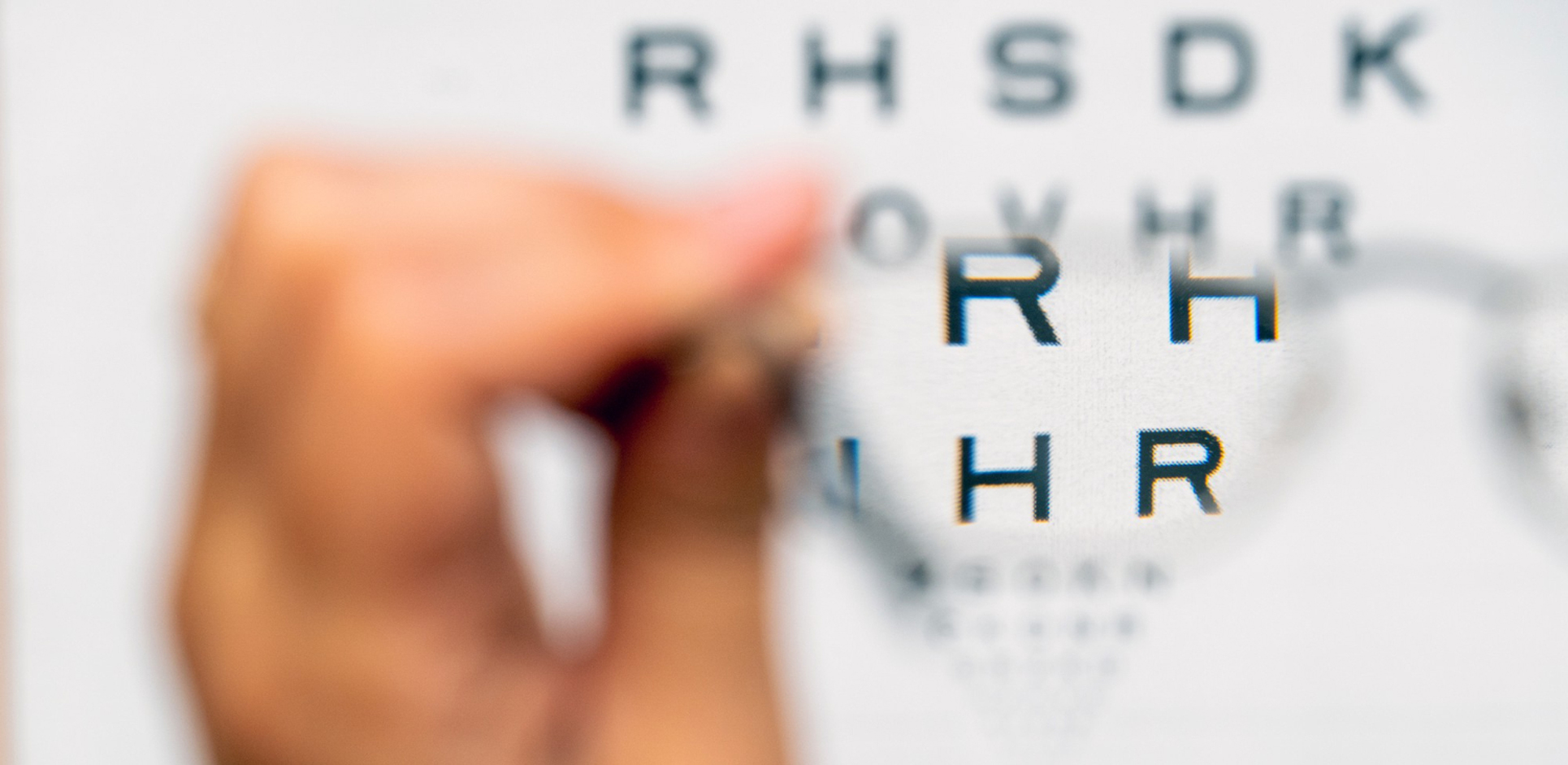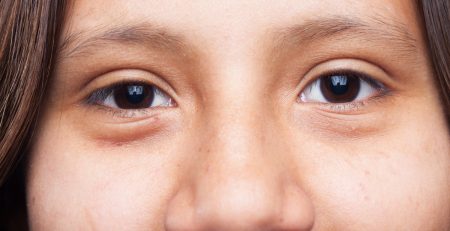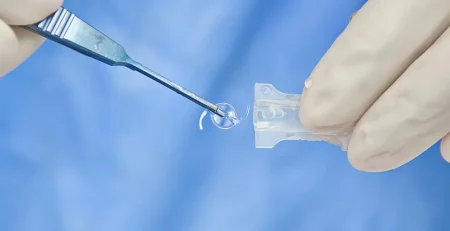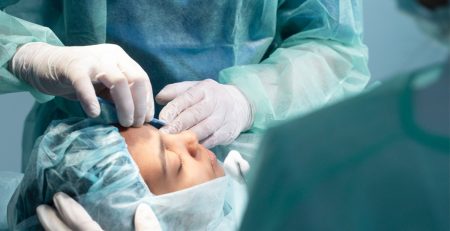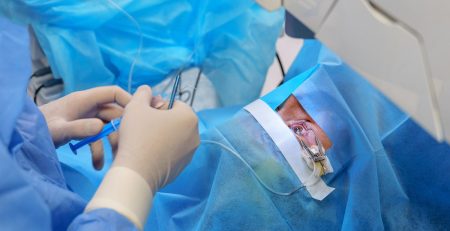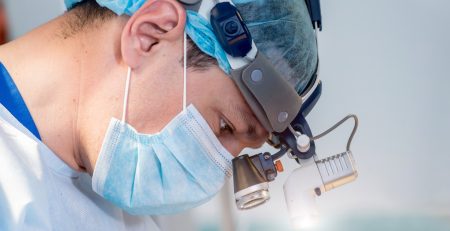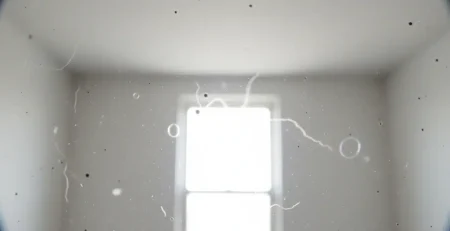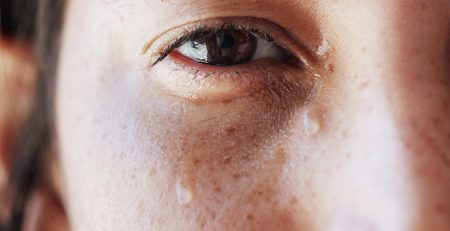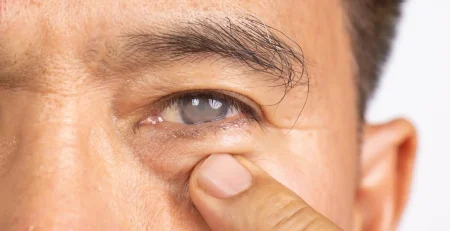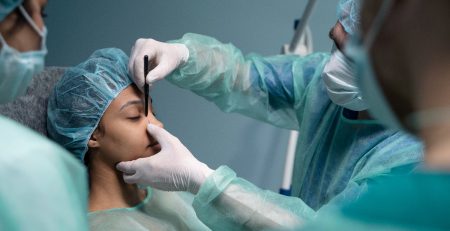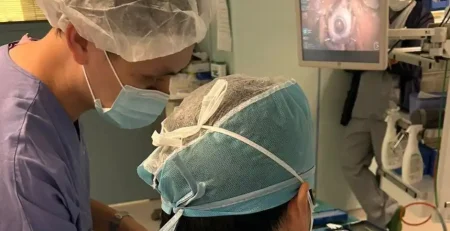Choosing an Eye Check Up in Singapore: Costs, Clinics & What to Expect
Do you spend hours in front of a computer, glued to your phone, or binge-watching your favourite shows? Our modern digital lifestyles are putting unprecedented strain on our eyes, making regular eye checks more important than ever. Beyond just a simple vision test, a comprehensive eye exam can detect early signs of a range of eye conditions, from dry eyes and digital eye strain to more serious issues like glaucoma and age-related macular degeneration.
But with so many options available in Singapore, where do you even begin? This guide will walk you through what you need to know about getting your eyes checked. We’ll demystify the roles of opticians, optometrists, and ophthalmologists, explain the different types of eye tests, and help you understand how often you should be getting a check-up, no matter your age or lifestyle.
At Cornerstone Eye Centre in Novena, Dr Roy Tan understands the uncertainty that comes with changing vision and is here to provide personalised care. Whether you’re worried about your symptoms or just need peace of mind, knowing what to expect during an eye check up in Singapore can help you take the next step toward healthier eyes.
Understanding Eye Check Ups: Types and Importance
Getting a regular eye check up is important for everyone, no matter your age. It’s not just about correcting blurry vision, but also about detecting silent eye diseases before they cause permanent damage. In Singapore, a simple eye test at an optical shop is quite different from a comprehensive eye examination with a specialist.
Difference Between Eye Check-ups: Eye Test Vs Eye Exam
Many people confuse these terms, but understanding the difference is important for getting the right level of care. A basic eye test includes visual acuity measurement using eye charts, refraction testing to determine glasses prescription needs, and preliminary eye health screening. You might receive this type of quick assessment at an optical shop when purchasing glasses. An optician usually performs this to determine your prescription for glasses or contact lenses.
An eye exam, however, is a comprehensive medical evaluation performed by a qualified optometrist or ophthalmologist. It is a more comprehensive examination that includes intraocular pressure checks, pupil dilation for retinal examination, a detailed assessment of eye structures using specialised equipment, and a thorough evaluation of your overall eye health.
This is the crucial distinction: one is for vision correction, the other is for your overall eye health. The specific tests recommended depend on your age, existing symptoms, and personal risk factors. Your eye care provider will explain which tests are appropriate for your situation and why they’re important for maintaining optimal eye health.
| Eye Test | Eye Exam |
| Checks vision strength | Checks eye health |
| Done by optometrists | Done by ophthalmologists |
| Quick (10–20 mins) | Longer (30–60 mins) |
Refraction Assessment
A refraction assessment is another type of eye check up in Singapore, whether you are getting a new prescription or not. It’s the part of the exam where the eye care professional determines the exact lens power you need to see clearly. During this test, you’ll be asked to look through a device called a phoropter, while the doctor or optometrist switches between different lenses. This helps them pinpoint the precise combination of sphere, cylinder, and axis needed to correct conditions like myopia (nearsightedness), hyperopia (farsightedness), and astigmatism. This test is painless and is crucial for anyone who wears glasses or contacts, ensuring your prescription is up-to-date and accurate for optimal vision.
What is a Comprehensive Eye Examination?
A comprehensive eye examination is a detailed evaluation of your eye health and vision, from the front surface of your cornea to the back of your retina. Unlike a quick test for new spectacles, this check-up goes deep, looking for early signs of diseases that might not have any symptoms yet.
Here’s a breakdown of the comprehensive eye examination at Cornerstone Eye Centre (Novena):
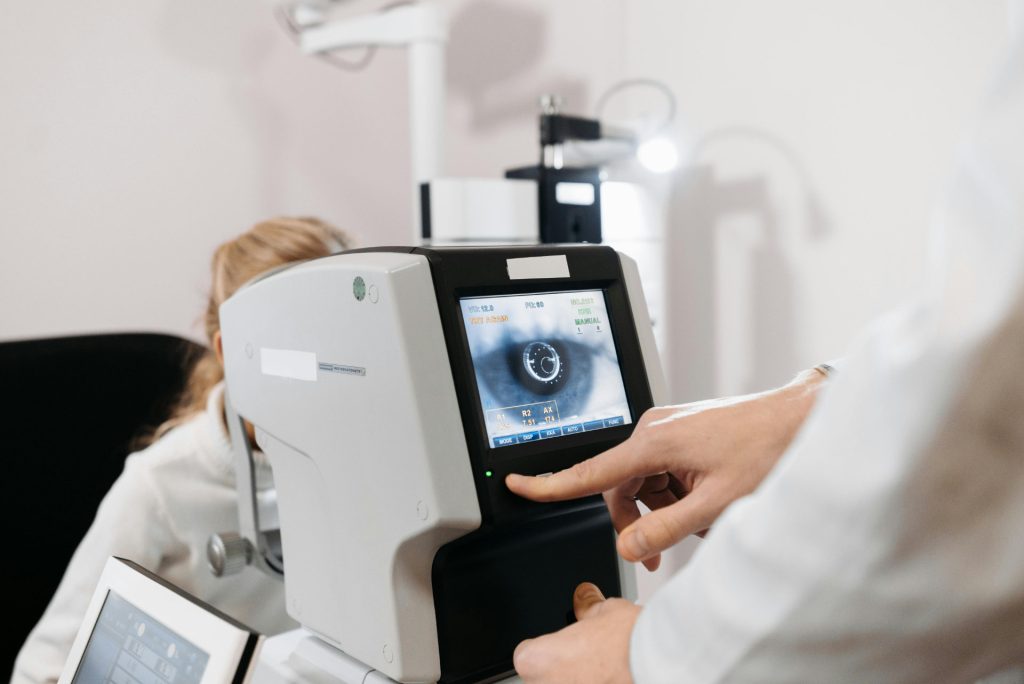
- Visual Acuity Test: Measures the clarity of your vision.
- Intraocular Pressure Test: Checks the pressure inside your eye to screen for glaucoma.
- Fundus Photography: Takes a detailed picture of your retina to detect early changes.
- Optic Nerve Screening: Looks for early signs of glaucoma.
- Full Eye Assessment: A thorough check of both the front and back of your eye.
- Ophthalmologist Consultation: An experienced eye doctor explains all your results and discusses your long-term eye health.
The entire process typically takes between 45-60 minutes and provides a complete picture of your eye health. This type of examination is particularly important if you’re over 45, have a family history of eye disease, or are experiencing symptoms that could indicate cataract or glaucoma development.
Early Signs of Eye Problems You Shouldn’t Ignore
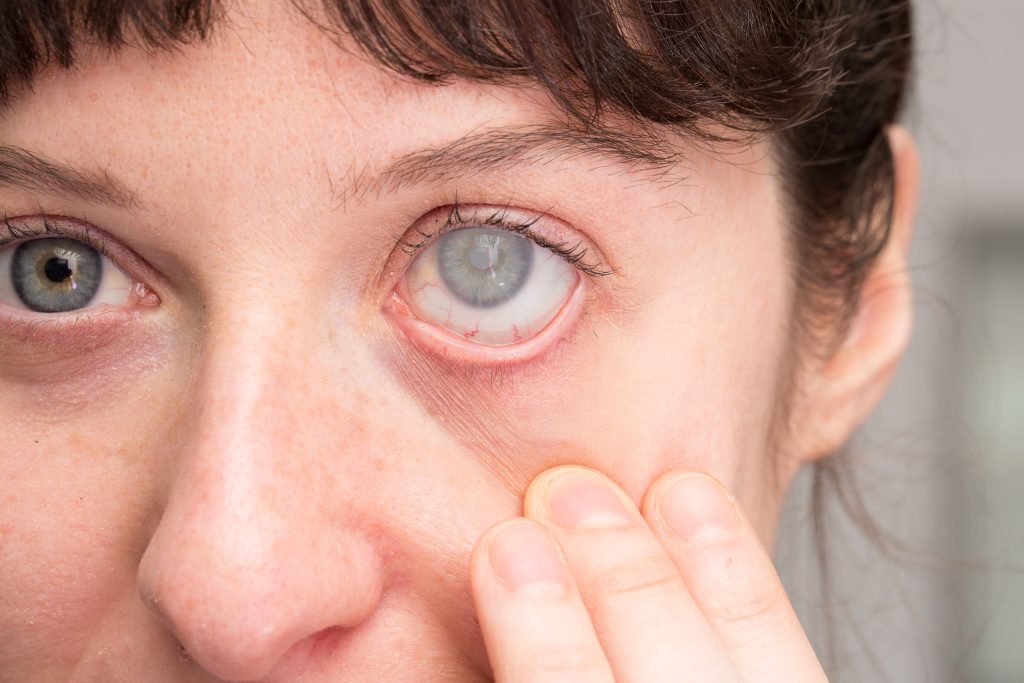
Recognising early warning signs can help you seek treatment before serious vision loss occurs. Common cataract symptoms include blurry or cloudy vision, increased sensitivity to light, difficulty seeing at night, and seeing halos around lights.
Other concerning signs include sudden changes in vision, flashing lights or floating spots, severe eye pain, or gradual loss of side vision. More subtle symptoms might include frequent headaches after reading, eye strain from computer work, or needing brighter lighting for daily tasks. If you notice any of these symptoms, don’t delay seeking professional care. Early detection often leads to better treatment outcomes.
Optician vs Optometrist vs Ophthalmologist: Who does what?
Knowing whether to visit an optician, optometrist or ophthalmologist is key to getting the right care. An optician dispenses glasses and contact lenses based on a prescription from an optometrist or ophthalmologist. They don’t conduct eye exams.
An optometrist is a healthcare professional who provides primary vision care. They conduct eye tests and prescribe glasses and contact lenses. You should see an optometrist for a routine check-up, to get a new prescription, or for simple issues like dry eyes.
An ophthalmologist, on the other hand, is a medical doctor who specialises in eye and vision care. They can perform a comprehensive eye check up, diagnose complex eye conditions, and perform surgery. You should see an ophthalmologist if you have an eye disease, need surgery (like cataract surgery), or have a serious eye injury.
Dr Roy Tan at Cornerstone Centre (Novena) is a highly reviewed and certified ophthalmologist who provides surgical and medical care.
Specialised Eye Check Ups for Different Age Groups
Different life stages bring unique eye health challenges and screening requirements. Age-appropriate care ensures you receive the most relevant testing and monitoring for conditions that commonly develop at various stages of life.
Comprehensive eye check ups for the elderly and seniors
Adults over 60 face an increased risk of age-related eye conditions, making annual comprehensive examinations essential rather than optional. Cataracts become increasingly common after age 60, with nearly everyone over 70 developing some degree of lens cloudiness.
Senior eye examinations focus particularly on detecting and monitoring age-related changes such as cataracts, macular degeneration, and glaucoma. Advanced imaging techniques help track the progression of existing conditions and identify new problems whilst they’re still treatable.
Dr Roy emphasises that maintaining independence through good vision is crucial for quality of life in later years. Early detection and treatment of age-related eye conditions can preserve your ability to drive, read, and enjoy activities you love, whilst also reducing fall risk associated with poor vision.
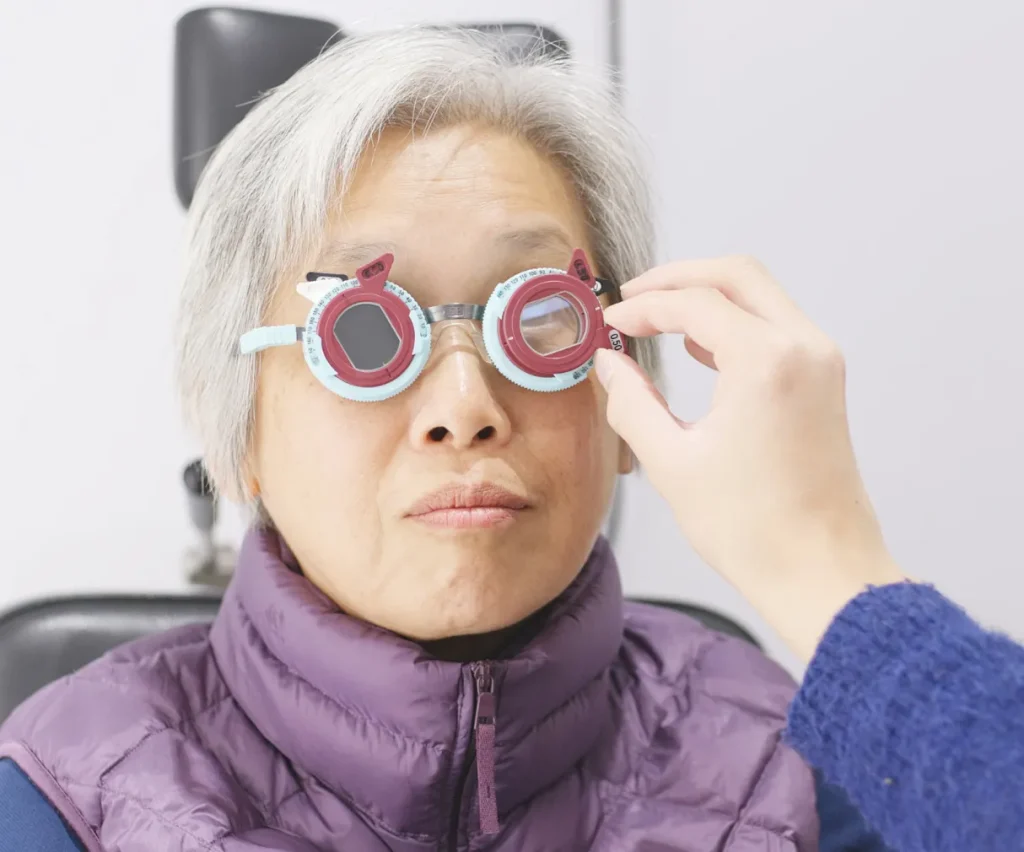
Child eye check up in Singapore: What parents need to know
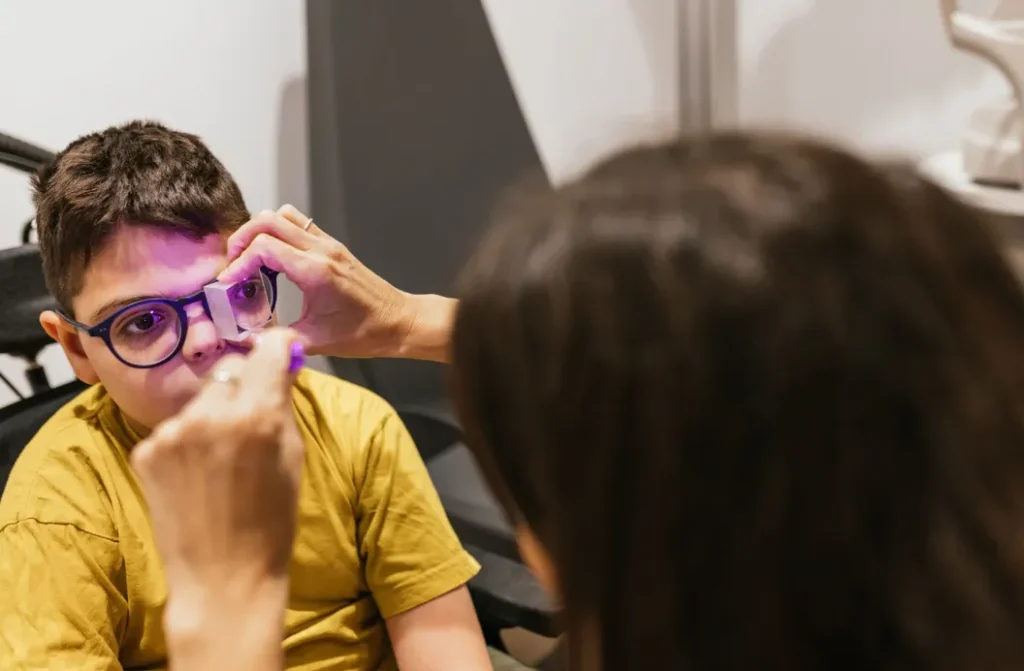
Children should receive their first comprehensive eye examination by age 3, or earlier if parents notice signs of vision problems such as frequent squinting, covering one eye, or tilting their head to see better.
School-age children benefit from annual eye examinations, as vision can change rapidly during periods of growth and development. Early detection of refractive errors helps prevent academic difficulties that can arise from undiagnosed vision problems.
Myopia is particularly concerning among Singapore’s children, with rates increasing dramatically in recent years. Early intervention through specially designed contact lenses, atropine drops, or lifestyle modifications can slow myopia progression and reduce the risk of serious complications in adulthood.
How Often Should You Get an Eye Check Up?
The recommended frequency for eye exams varies based on age and health factors:
- Children and Young Adults (up to 39): It’s generally recommended to have a full eye exam every one to two years, especially if you wear glasses or contact lenses.
- Adults (40 to 60): A comprehensive eye exam every one to two years is recommended. This is a critical period when early signs of conditions like presbyopia and glaucoma may appear.
- Seniors (over 60): An annual eye exam is advised as the risk of age-related eye diseases increases significantly.
Your ophthalmologist can give you a personalised recommendation based on your individual risk factors and needs.
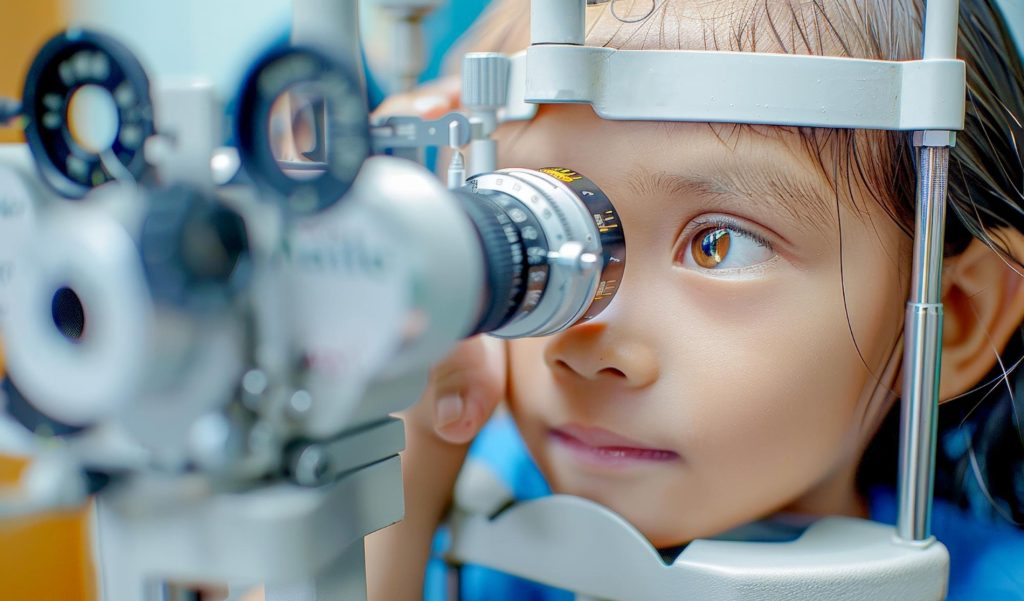
Eye Check-Up Costs in Singapore
Understanding the financial aspects of eye care helps you plan appropriately and choose the most suitable level of examination for your needs. Costs vary depending on the complexity of testing required and the type of healthcare facility you choose.
Average Cost of Eye Examinations in Singapore
The cost of a basic eye test at an optical shop can range from as little as $30 to $50. However, for a full eye check up in Singapore with an ophthalmologist, the price will be higher due to the specialised tests and consultation fee.
A comprehensive eye exam can cost anywhere from $150 to over $350. This usually includes a consultation with the doctor, a vision check, and screening for common eye diseases. Packages tailored for specific conditions, such as cataract or glaucoma screening, may have a set price. For example, Dr Roy at Cornerstone Eye Centre (Novena) offers a consultation and screening package for cataract and glaucoma for $88.
Private specialist consultations generally cost more than public healthcare options, but they often provide shorter waiting times and more detailed personalised attention. The investment in thorough eye care can prevent more expensive treatments later by catching problems early.
Factors Influencing Eye Check-Up Costs
The price of an eye examination depends on several key factors:
- Type of healthcare facility – Polyclinics offer subsidised rates for citizens/residents, while private centres charge higher fees for specialist care.
- Complexity of condition – Basic tests for refractive errors cost less than advanced diagnostics for complex or age-related conditions like cataracts.
- Additional diagnostic tests – Procedures such as OCT scans, visual field mapping, or corneal measurements increase costs but provide deeper clinical insights.
- Specialist consultation – Extended consultation time and specialised measurements may add to overall fees, with doctors explaining essential tests and their costs upfront.
Insurance Coverage for Eye Tests
Private insurance plans may offer coverage for routine eye exams, especially if they are part of a wellness or health screening package. It’s always best to check with your insurance provider beforehand to understand what is covered and what isn’t.
When you visit Dr Roy Tan at Cornerstone Eye Centre, his team can help you with the necessary paperwork and provide a clear breakdown of the costs.
Preparing for Your Eye Check Up: What to Expect
Proper preparation ensures your eye examination provides the most accurate assessment possible. Understanding the examination process can also help reduce anxiety about your appointment and ensure you get maximum value from your consultation.
Before Your Appointment: Preparation Tips
Here are some tips to help you prepare for your visit:
- Bring your current glasses or contact lenses, along with your most recent spectacle prescription, if you have it.
- Create a list of questions or concerns you have about your vision. Note down any specific symptoms you’ve noticed.
- Know your family’s medical history related to eye diseases, such as glaucoma or cataracts, as this information is important for the specialist.
Step-by-Step Eye Examination Process
Your examination typically begins with a detailed discussion of your medical history, current symptoms, and vision concerns. They will generally ask about any family history of eye disease, current medications, and general health conditions that might affect your eyes.
Visual acuity testing follows, where you’ll read letters or numbers on charts at different distances. Refraction testing determines whether you need glasses or if your current prescription requires updating. Eye pressure measurements help screen for glaucoma risk.
The ophthalmologist will examine your eyes using a slit lamp microscope, providing magnified views of eye structures to check for signs of disease, inflammation, or injury. If pupil dilation is necessary, special drops will temporarily widen your pupils for detailed examination of your retina and optic nerve.
Understanding Your Eye Test Results
After all the tests are completed, the ophthalmologist will sit down with you to discuss the results. They’ll explain your current vision, whether you have any refractive errors like myopia or astigmatism, and if there are any signs of eye disease. If a condition like a cataract is detected, they will explain the severity and discuss treatment options. This is your opportunity to ask questions and gain a full understanding of your eye health.
Frequently Asked Questions About Eye Check Ups in Singapore
These commonly asked questions address concerns many patients have about eye examinations and help clarify what to expect during your visit to an ophthalmologist.
Are polyclinic eye check ups free?
Polyclinic eye check-ups are not free, but they are generally more affordable for Singapore citizens and permanent residents than private clinics. The fees are subsidised by the government, making them an accessible option. However, for complex conditions, you may be referred to a hospital or a private clinic for specialised care.
Is an optometrist a doctor?
No, an optometrist is not a medical doctor. An optometrist is a qualified healthcare professional who has completed a diploma or a degree in optometry. They are trained to perform eye tests and prescribe corrective lenses. An ophthalmologist is a medical doctor who has completed medical school and specialised training in eye care, including surgery. They can diagnose and treat eye diseases.
Ready for a comprehensive eye check up?
Dr Roy Tan at Cornerstone Eye Centre (Novena) offers comprehensive eye examinations. Whether you need routine screening, cataract evaluation, or management of complex eye conditions, our team provides personalised care tailored to your specific needs and concerns.
Our thorough examinations include all necessary testing to assess your eye health accurately, with clear explanations of findings and treatment options. We take time to answer your questions and ensure you understand your eye health status and any recommended next steps.
Book a Cataract & Glaucoma Screening for $88
Don’t wait for symptoms to appear before taking action. Early detection is key to preserving your vision.
At Dr Roy Tan’s clinic, we offer a comprehensive Cataract & Glaucoma Screening for just $88. This screening is designed to assess your eye health thoroughly, identify any early indicators of glaucoma or cataracts, and discuss your personalised options if either condition is detected.

